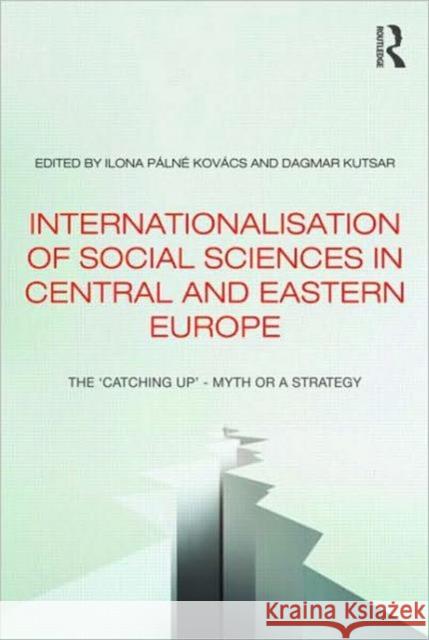Internationalisation of Social Sciences in Central and Eastern Europe : The `Catching Up' -- A Myth or a Strategy? » książka
Internationalisation of Social Sciences in Central and Eastern Europe : The `Catching Up' -- A Myth or a Strategy?
ISBN-13: 9780415548236 / Angielski / Twarda / 2010 / 227 str.
Internationalisation of Social Sciences in Central and Eastern Europe : The `Catching Up' -- A Myth or a Strategy?
ISBN-13: 9780415548236 / Angielski / Twarda / 2010 / 227 str.
(netto: 692,55 VAT: 5%)
Najniższa cena z 30 dni: 705,23
ok. 22 dni roboczych
Dostawa w 2026 r.
Darmowa dostawa!
This text explores the way in which social sciences, in comparison with other sciences in Europe, have been divided by the political orders of West and East. As part of the field of science policies in Europe, this book contributes to the creation of a new understanding of the European academic landscape of social sciences.
Social sciences in comparison with other sciences in Europe have been divided by the political orders of the West and East. In Central and Eastern Europe social sciences were ideologically highly controlled and politicised by the totalitarian system. Following the collapse of the totalitarian systems â as compared with other sciences â contemporary social sciences in the region started to spring from scratch. All it needed â ideological turnover, curriculum development, Western literature, academic contacts, funds, command of common language of communication, skills of doing research in international and interdisciplinary teams of researchers and building pan-European research networks. Considering the aim of establishing European Research Area we could experience that the international co-operation could not become integrated part of the scientific existence in CEE countries, and the institutions managing science policy were unable to promote the international contact-building. The internationalisation of social science, the absorption of European research funds is not proportional, the convergence between Western and Eastern social scientific life is hindered by many factors introduced in the volume. Coherence in European social sciences can be reached only, if new academic traditions and cultures are developed and science policies harmonised.
The present edited book belongs to the field of science policies in Europe and contributes to the creation of a new understanding of the European academic landscape of social sciences with a special focus made on CEE countries. The book is addressed to scholars and science administrators, policy makers at national and European level. It could also serve as a source book for students and broader who take courses related to science policies, Europeanisation, European integration, and CEE or transitional studies











